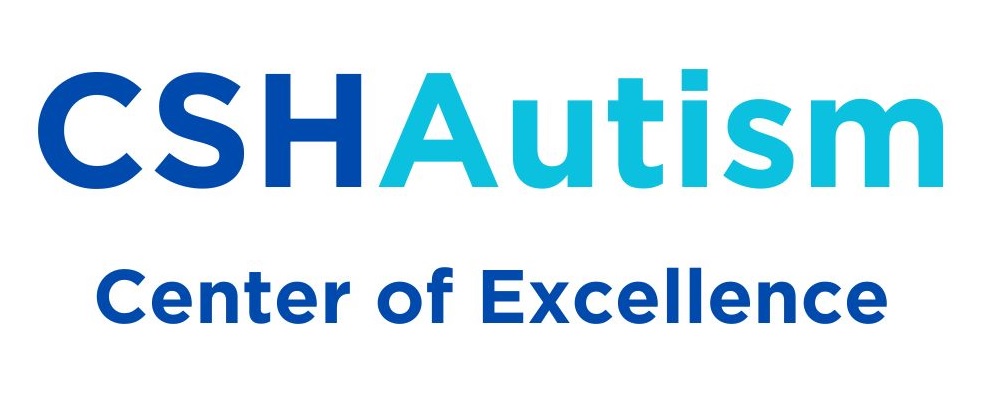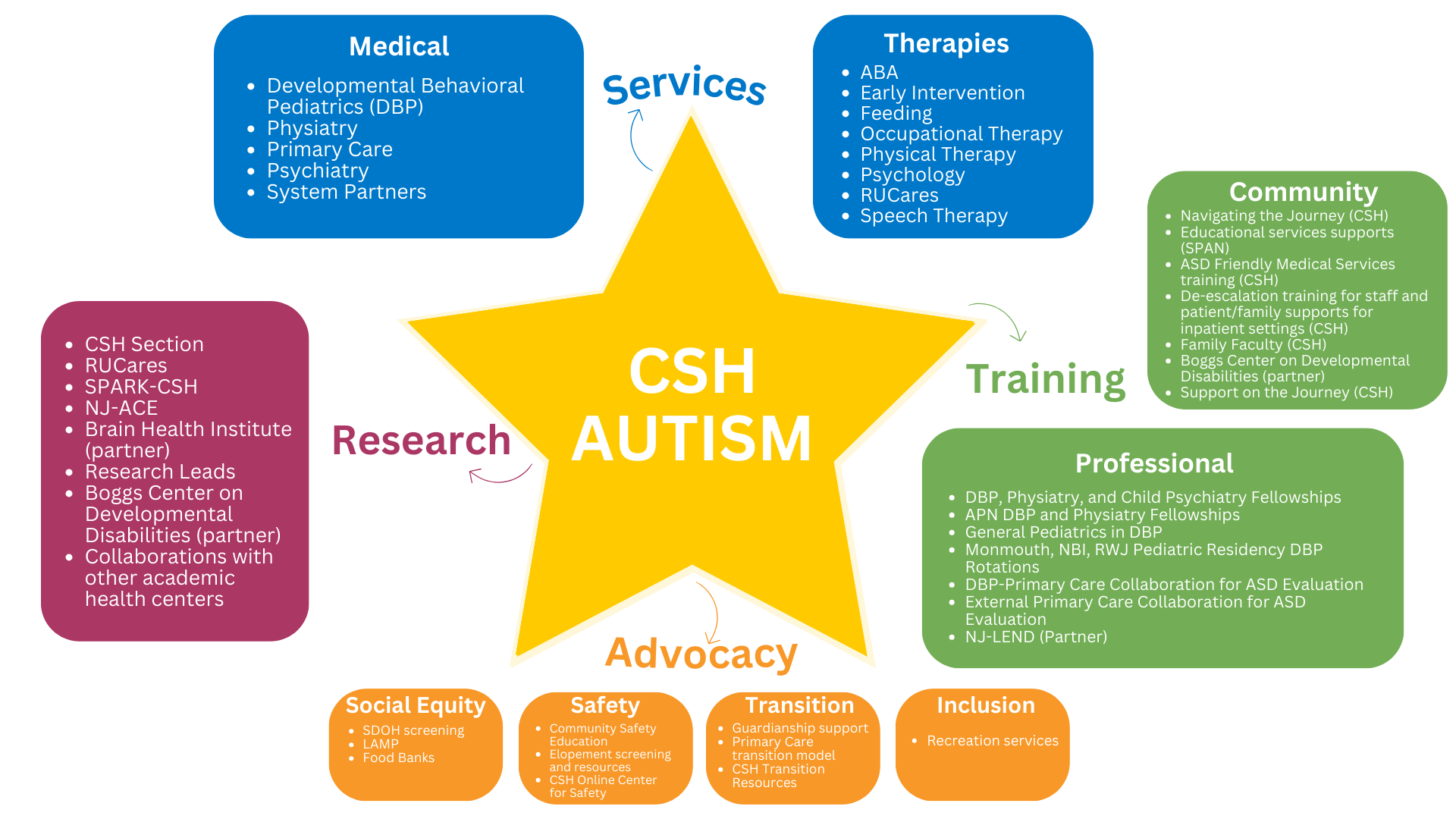Pediatric Autism
Children's Specialized Hospital
Autism Center of Excellence

The mission of CSH AUTISM, Children’s Specialized Hospital’s Center of Excellence for Autism Services, Training, Advocacy, and Research is to support fulfilling lives for autistic individuals and their families. The mission rests upon these values: supporting lives with meaning and purpose, exercising choice, building on strengths, and empowering access to needed resources. We are dedicated to excellence across these domains:
- Service: We recognize the importance of clinical innovation to improve early identification and access to a variety of evidence-based therapies for autistic individuals.
- Training: We strive to educate the world on the needs and strengths of individuals with autism, to improve access to and quality of support throughout the community.
- Advocacy: We appreciate neurodiversity and support autistic individuals in their pursuit of social, health care, and educational equity. We also recognize the effects that social determinants have on a person's health.
- Research: We are dedicated to the scientific exploration required to better understand and effectively support individuals with autism.

What is Autism?
Autism or Autism Spectrum Disorder (ASD) is a complex neurodevelopmental disability involving a combination of challenges including social, communication, and restricted and/or repetitive behaviors or interests. ASD is known as a spectrum disorder as the characteristics affect each person differently and in varying degrees. ASD can also be described based on the amount of support a person needs.
What are the early signs of ASD?
Early screening and early intervention are very important to help children reach their full potential. Possible early signs for ASD include challenges with:
- Adjusting to changes (likes things to be the same)
- Imaginative play
- Loss of skills
- Making eye contact
- Pointing to objects to show interest (looking at objects when another person points to them)
- Sensitivities to sound, texture, light or smells
- Repetitive speech or movements
- Responding to name
- Use of gestures
- Forming Friendships
What’s the benefit of early diagnosis and intervention?
Early diagnosis and intervention (usually between 18 months and 3 to 4 years old), along with access to appropriate services and support, can dramatically improve a child’s quality of life and functional abilities at home, school, and in the community.
After a diagnosis, the focus turns to a child’s long-term and individualized needs. Early intervention promotes social, cognitive, language, and physical development through activities such as family training, speech, occupational and physical therapy, and nutrition.
What’s the next step if I suspect my child may be on the spectrum?
A trained medical provider will assess if a child has ASD by watching how they play, communicate, behave, and interact with others. Because we know these evaluations offer just a glimpse, your provider will make time to speak with you, and listen to your observations, thoughts, and concerns. The provider will incorporate your feedback into their overall assessment and provide further insight about childhood development. Your provider may also arrange for additional evaluations with a speech therapist, occupational therapist, and child psychologist.



